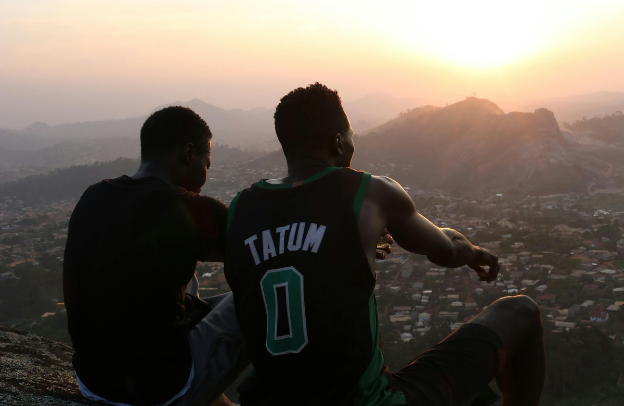The Impact of Group Tourism on Local Communities: Strengthening Diaspora-Local Partnerships

Group travel is becoming more than just a way to see the sights — it’s turning into a meaningful bridge between diaspora communities and their home countries. When people return in groups to explore their roots, they’re not only boosting the local economy but also reconnecting with culture, family, and community in powerful ways. This article looks at how group travel can create lasting, positive partnerships between locals and members of the diaspora, and how these connections can lead to real benefits for everyone involved.
Learn How to Leverage Your Story through our Story To Asset Framework.
The Impact of Group Tourism on Local Communities
The travel industry is one of the most far-reaching sectors in terms of its economic and social influence — and group travel, especially when driven by diaspora communities, is a powerful example of that impact. When organized groups of diaspora travelers return to their homelands, the benefits go beyond sightseeing.
These visits can breathe new life into local economies, support small businesses, help restore cultural landmarks, and spark meaningful partnerships that last well beyond the trip itself.
If you’re curious about how group travel—particularly involving diaspora communities—can transform local areas, you’re in the right place. In this article, we’ll explore how these group visits create positive ripple effects in local communities, share real-world examples of success, and dive into the challenges and smart strategies needed to make these partnerships sustainable and impactful.
To truly grasp the value of group travel, it’s important to look at the broader picture—how it shapes local economies, strengthens cultural connections, and builds bridges between people who share a common heritage. Let’s explore the socio-economic impact of group travel and how it can empower communities through collaboration and shared purpose.
Engine For Economic Growth
Tourism is recognized globally as a powerful engine for economic growth, and in South Africa, it plays a vital role in government planning due to its labor-intensive nature and far-reaching supply chains. Community-Based Tourism (CBT) is seen as a key strategy to bring travel benefits directly to local populations. A recent study by the South African National Department of Tourism explored the impact of CBT projects in KwaZulu-Natal, focusing on the Ugu and Ethekwini Municipalities.
These locations were chosen for their contrasting contexts—Ugu for its potential as a model of best practices and Ethekwini for its high tourist volumes. Using focus groups, interviews, and questionnaires, the study gathered insights from 154 participants, most of whom were community members.
The findings show that CBT projects have real potential to uplift local livelihoods by supporting economic development, improving infrastructure, and offering community-driven planning opportunities.
However, the study also highlights several challenges. While CBTs do contribute to higher living standards and job creation, the benefits are often not broad enough to meet the diverse needs of entire communities. A lack of training and experience among community members in managing travel enterprises also limits the success of these initiatives.
Conflicts over project management and benefit distribution further complicate efforts. The research emphasizes the need for meaningful participation from communities—not just as beneficiaries but as active partners with influence over decisions and resources.
While CBT projects should not be viewed as a cure-all for unemployment and poverty, they represent a valuable livelihood strategy that can complement other development efforts when properly supported and managed.
According to the African Union, the continent welcomes nearly 70 million international tourists annually, a number that includes a growing number of African descendants seeking to reconnect with their heritage.
Initiatives like Ghana’s “Year of Return,” launched in 2019, exemplify how government-backed campaigns can harness travel to rekindle ancestral ties. The initiative, which brought over a million visitors to Ghana in a single year, generated approximately $1.9 billion in revenue and created significant economic opportunities for local vendors and service providers.
But beyond economic impact, the real transformation happens at the community level. When groups of diasporans visit local artisans, volunteer in village schools, or invest in small-scale enterprises, they plant seeds of long-term partnership.
The presence of African descendants from the U.S., Caribbean, or Europe often reshapes how local communities see themselves; not just as beneficiaries of aid or curiosity, but as holders of culture valuable enough to be reclaimed.
In Lagos, for example, the Nlele Institute, an arts-focused nonprofit, hosts photography and storytelling tours that connect diasporans with young Nigerian creatives. The results have been mutual: local photographers gain mentorship and exposure to global markets, while diasporans get an intimate look into the evolving narratives of contemporary African cities.
Your might also like How Group Tourism Fosters Mutual Understanding Among African Diaspora Communities
Dr. Cheryl Finley, Director of the African Diaspora Art Museum of Atlanta (ADAMA), highlights that these cultural exchanges are “more than memory—they’re part of a collective strategy for reclaiming agency.” Her work underscores that memory-making is not a passive act, but a dynamic, ongoing process rooted in shared storytelling, collaboration, and the physical reconnection to ancestral places.
Group travel plays a vital role in this process, offering a powerful counter-narrative to the often-disempowering legacies of colonial and post-colonial travel. While the continent was once depicted through lenses of exoticism or deficiency, diaspora-led travel today champions authenticity, mutual respect, and community empowerment.
The importance of shared storytelling cannot be overstated. When group tours incorporate historical sites such as Elmina Castle in Ghana or the Door of No Return in Senegal, the encounters are not passive. They become opportunities for healing and collective mourning, yes, but also for envisioning the future.
Scholars like Dr. Fatimah Jackson of Howard University note that these moments become “rites of passage,” affirming a sense of identity and responsibility among participants.
One unique example of travel-driven solidarity can be found in Ethiopia’s Simien Mountains, where diaspora-led trekking groups partnered with local communities to build eco-lodges and support sustainable agriculture projects. These partnerships emerged from a desire not only to visit but to contribute meaningfully to communities, many of which lack access to consistent travel revenue. The result is a model of travel that doesn’t extract but invests.
See also How Group Tourism Facilitates Ongoing Collaboration and Growth within Diaspora Communities
Language also becomes a bridge during these journeys. While many diasporans arrive with limited knowledge of local dialects, group travel often includes cultural immersion workshops; from Yoruba drumming to Ewe poetry, that foster mutual respect and deeper understanding. Local hosts, in turn, often share not just their crafts but their aspirations and strategies for community building.
The impact on youth is particularly profound. In several Nigerian villages, visits by diaspora groups have spurred schools to adopt digital tools and expand their cultural curriculum, inspired by the dialogues and donations brought by returning African descendants.
These partnerships are not without challenges. Issues of cultural sensitivity, uneven power dynamics, and unmet expectations can strain relationships. However, most group travel organizers now prioritize pre-trip orientations and post-trip evaluations to mitigate misunderstandings.
In the end, group travel represents more than a trend; it’s a movement. One where diasporans are not just spectators of Africa’s evolution but active participants in shaping it. They are buying from local vendors, investing in schools, forming lifelong friendships, and rewriting inherited narratives through lived experience.
As the world becomes increasingly interconnected, the need for purposeful, people-centered travel grows more urgent. Group travel, when ethically designed and collaboratively executed, offers a template for what diaspora engagement can look like at its best. It proves that history is not merely something to be remembered, but something that can be rebuilt, together, step by step, journey by journey.
And for the young girl in Accra learning to code because a diaspora group donated laptops to her school, or the chef in Dakar whose recipes are now published in a diasporan food journal, the impact is not theoretical. It’s real, lasting, and deeply transformative.
Learn How to Leverage Your Story through our Story To Asset Framework.





